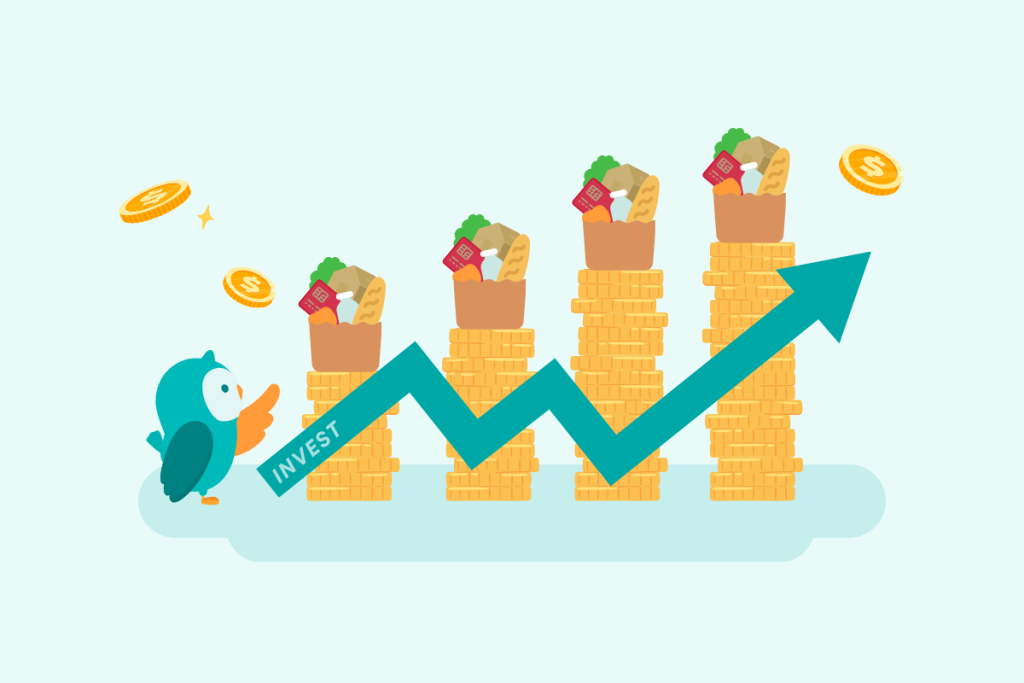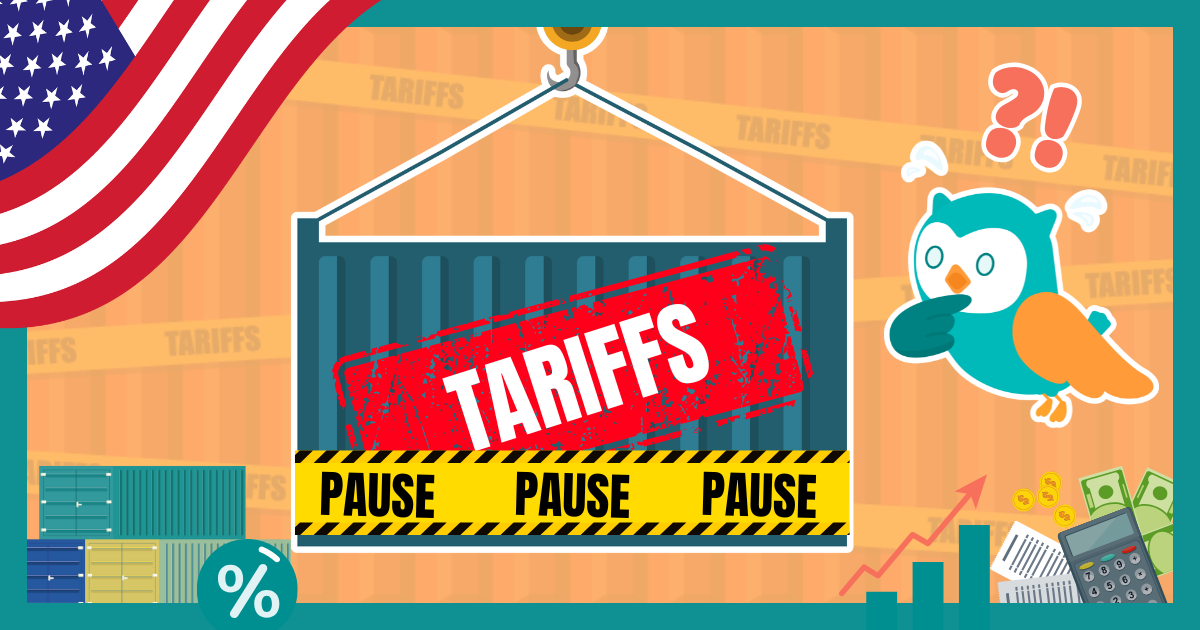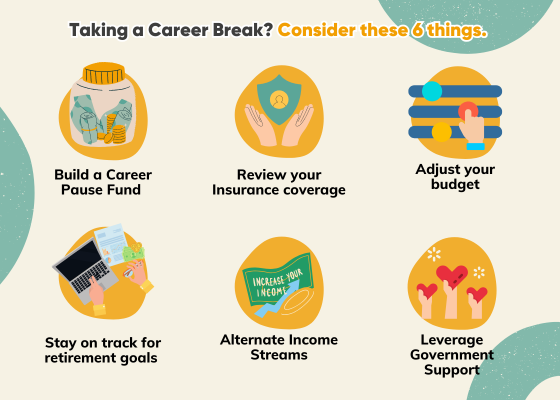In the news, inflation is always portrayed as a scary phenomenon. Headlines like “Rising prices” and “sticky inflation” seem to dominate the stories in local and financial news.
In some respects, inflation can be intimidating. When prices – for everything from fish and clothing to housing and transport – rise consistently then this can slowly erode how much our money is worth.
For those of us in Singapore, recent news has shown that Singapore’s consumer price index (CPI), a common measure of headline inflation, expanded by 3.1% year-on-year in May.
But what exactly is inflation and how can investing help you outpace it? Let’s dig in and find out.
Understanding the CPI in Singapore
The premise of inflation is simple. It’s when prices for everyday goods and services rise over time. In Singapore, one of the main measures of inflation is the CPI.
The government body Statistics Singapore collects the prices of 6,800 goods and services from across 4,200 outlets in Singapore.
The upshot of all this is that a monthly CPI number is available that shows everyone the price rises on both a yearly basis as well as monthly basis. Most figures displayed in the media are based on the year-on-year numbers.
Perhaps an even more important measure of prices is “core inflation”. This is the CPI but excludes accommodation and private transport.
In that sense, it tends to be a better measure of the true level of inflation in Singapore’s economy.
Inflation in Singapore
As we are all probably aware, we have seen prices rise faster than usual in recent years. That’s also been seen in the inflation data.
For example, core inflation in Singapore hit 5.5% in January 2023 – its highest year-on-year increase since November 2008.
However, core inflation has subsided and May 2024’s core inflation rate was stable, in line with March and April increases, at 3.1% (see below).
Singapore’s core inflation (%): January 2023 – May 2024

Source: Monetary Authority of Singapore
Singapore’s battle with inflation in 2022 and 2023 wasn’t unique to our Little Red Dot. It was a global phenomenon, with countries like the US, Germany, Australia, and India all experiencing higher-than-normal inflation.
One of the main reasons that inflation has come down in Singapore – and across the world – is that interest rates are now higher than they were.
Why you cannot afford to ignore inflation?
Consider what inflation actually does to your savings. As how your savings will grow and compound with interest, inflation does the opposite of that, as it gradually erodes the value of your savings over time. Consistent price rise will eat into what your money can buy in a year’s time, 5 years’ time, or 10 years’ time.
For example, with an annual inflation rate of 3%, your $100 today will only be able to buy $97 worth of goods and services at this time next year, and $74 after 10 years.
That’s why you cannot afford to do nothing and it’s so important to invest and ensure our savings can outpace inflation. So, while interest rates may be higher today, they won’t stay high forever.
With that in mind, it means we need to be able to get our money to grow for us in the long term. In that sense, investing is the answer to make it happen.
As you can see if the chart below, if you started today with $100,000 and just left in cash that wasn’t giving you a return, the value of your money would nearly halve in 30 years to around $55,000. And that’s assuming an inflation rate of just 2%. As we know, inflation right now in Singapore is marginally over 3%.
Contrast that to investing your $100,000 into something that generates an average annual return of 5% (which is conservative since global stock markets have historically given individuals 7-8% annual returns over the long term).
Even with that 5% rate of return, your $100,000 would grow to nearly $250,000 over three decades – nearly five times what you would have had you left it in cash. That’s the beauty of compounding in motion.
Inflation-adjusted growth of wealth ($)

What assets can beat inflation?
When inflation is relatively high but slowing, like it is today, it can be confusing for us to figure out what we should actually put our money into.
But it’s relatively less complex than we think. If we have a long investing time horizon (of say at least 20 years) then we should be putting a portion of our money into stocks – known as “equities”.
These are known to thrive in both low-inflation and high-inflation environments. However, we want positive real returns, which means a positive percentage return after taking into account the impact of inflation.
Invest in the whole world
Although we might be tempted to just invest in certain markets or pick the hottest stocks, it’s a much better idea to invest globally so that we aren’t too over-reliant on just one market or instrument.
MSCI All Country World Index (gross div.) in SGD

Source: MSCI as of 31 May 2024
As seen from the chart above, the MSCI All Country World Index (ACWI), one of the most-referred to benchmarks of global stock markets, has managed to deliver an SGD-hedged total return of over 10 times over the past 35 years.
But that’s not been a straight line up and to the right. There have been periods of intermittent volatility (which all investors have to deal with) that doesn’t make the whole process of investing exactly “smooth”. But to cope with such short-term market volatility, you simply need to ride it out and hold on to your investments
Another way to reduce volatility and provide diversification for our investments, is to consider bonds (otherwise known as “fixed income”).
That’s because bonds typically rise in years when stocks fall and are generally a lot less volatile. Bonds are considered “safer” investments but have lower long-term returns because of that characteristic.
By finding low-cost ways to invest into well-diversified global stocks and bonds, we can better protect our wealth from the negative effects of inflation.
At the end of the day, the result of investing globally over longer timeframes is predictable in that history shows us markets can indeed beat inflation. And the result is that you will have more money, as everything you need to buy and pay for will eventually become more expensive over time.
Think long term and act today
By understanding the history of financial markets and their ability to give us a return that can beat inflation over the long term, we can better prepare ourselves to start putting our savings to work by investing it.
Disclaimer:
While every reasonable care is taken to ensure the accuracy of information provided, no responsibility can be accepted for any loss or inconvenience caused by any error or omission. The information and opinions expressed herein are made in good faith and are based on sources believed to be reliable but no representation or warranty, express or implied, is made as to their accuracy, completeness or correctness. Expressions of opinions or estimates should neither be relied upon nor used in any way as indication of the future performance of any financial products, as prices of assets and currencies may go down as well as up and past performance should not be taken as indication of future performance. All investments carry risk. The author and publisher shall have no liability for any loss or expense whatsoever relating to investment decisions made by the reader.




